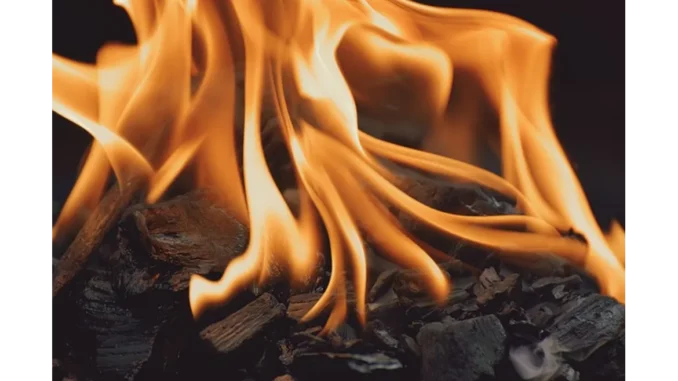
The tragic Grenfell Tower fire continues to reverberate through the British construction industry, casting an enduring shadow over its practices and regulations. The final report from the Grenfell Inquiry, published six years after the catastrophic event, unveils a series of systemic failures that culminated in the loss of 72 lives. The inquiry’s recommendations include the establishment of a new construction regulator and the appointment of a Chief Construction Adviser. In an interview with Rebecca Hughes, a senior consultant at a prominent construction management firm, deeper insights into the implications of these recommendations were explored.
Focus360 Energy: property compliance services – pre-planning to post-construction. Learn more.
Rebecca Hughes, who has been actively engaged in fire safety initiatives since the Grenfell disaster, provided a sobering yet enlightening perspective on the proposed changes. Her insights underscore the necessity for a comprehensive reform of the construction industry to avert such tragedies in the future.
“The Grenfell tragedy was a wake-up call for everyone in the industry,” Rebecca began, her tone reflective. According to her, the most significant recommendation from the report is the establishment of a single, independent construction regulator. “The current system is fragmented, with responsibilities dispersed across various bodies. This has led to a lack of accountability and oversight, which was a critical factor in the Grenfell disaster.”
The proposed regulator would have a broad mandate, including the licensing of contractors on higher-risk projects, monitoring building regulations, overseeing building control, and ensuring product compliance. “It’s about creating a unified approach to construction safety,” Rebecca explained. “One body, reporting to a single Secretary of State, would streamline processes and ensure that safety is always the top priority.”
Another pivotal recommendation is the appointment of a Chief Construction Adviser. This role would involve advising the Secretary of State on all matters affecting the construction industry. Rebecca believes this position is crucial for driving cultural change within the sector. “Having a Chief Construction Adviser would ensure that there’s a consistent voice advocating for safety and best practices across the industry,” she said. “This person would be pivotal in bridging the gap between the government’s regulatory framework and the on-the-ground realities of construction projects.”
Rebecca also emphasised the importance of knowledge sharing and continuous improvement. “The construction industry is always evolving, and we need to ensure that our practices evolve with it. The Chief Construction Adviser would play a key role in fostering a culture of learning and adaptation.”
The Grenfell Inquiry’s report did not shy away from assigning blame, identifying “decades of failure” by central government and the construction industry, as well as serious deficiencies in fire safety testing and the regulation of building materials. “The findings were damning,” Rebecca acknowledged. “But they were necessary. We need to confront these failures head-on if we’re to prevent another tragedy like Grenfell.”
One of the most shocking revelations was the “systematic dishonesty” by manufacturers of cladding and insulation materials. Companies like Arconic Architectural Products and Celotex were found to have deliberately misled customers about the safety of their products. “These companies put profits before people, and the consequences were catastrophic,” Rebecca said, her voice tinged with frustration. “The new regulator will have the authority to enforce stricter compliance and hold manufacturers accountable for their actions.”
The report also calls for a comprehensive review of fire safety by the state, emergency services, and the construction industry. Rebecca sees this as an opportunity to implement long-overdue reforms. “We need to ensure that fire safety is integrated into every stage of the construction process, from design and planning to construction and maintenance,” she emphasised. “This means better training for contractors, more rigorous testing of materials, and a greater focus on the safety of residents, particularly those who are most vulnerable.”
Rebecca also pointed to the need for improved fire safety research and testing. “The Building Research Establishment’s practices were found to be inadequate, and we need to invest in independent, transparent research to ensure that our buildings are truly safe.”
As our conversation drew to a close, Rebecca expressed cautious optimism about the future of the construction industry. “The recommendations from the Grenfell Inquiry are a step in the right direction. But we need to ensure that they’re implemented effectively and that we don’t lose momentum.”
Reflecting on the enormity of the task ahead, she added, “The Grenfell disaster was a tragedy of unimaginable proportions. We owe it to the victims and their families to learn from our mistakes and build a safer future for everyone.”
The Grenfell Inquiry’s final report places the construction industry at a crucial juncture. The establishment of a new construction regulator and the appointment of a Chief Construction Adviser offer a pathway towards enhanced accountability, transparency, and safety. However, achieving these goals will demand unwavering commitment and collaboration from all industry stakeholders. Only through such concerted efforts can we hope to prevent another tragedy like Grenfell and honour the memory of those who lost their lives.


Be the first to comment